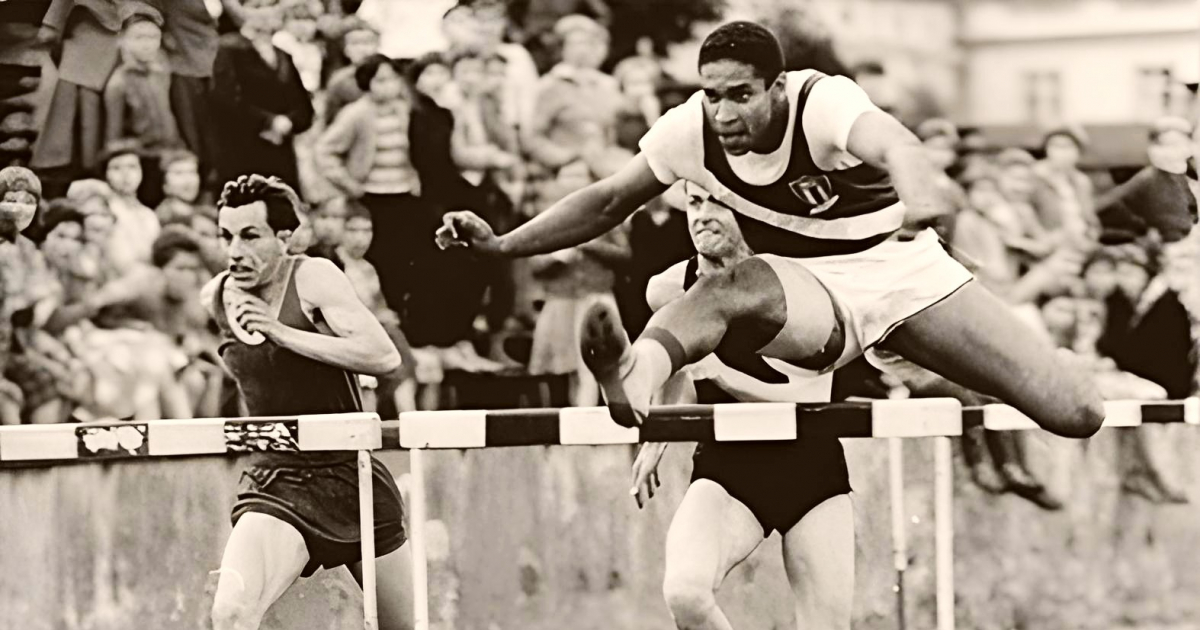
Related videos:
Cuban athletics is in mourning following the announcement of the death of Lázaro Arístides Betancourt Mella, who passed away at the age of 88 in Havana. Betancourt, originally from Matanzas, dedicated his life to the development of sports in Cuba and left an indelible mark as an athlete, coach, and leader.
Betancourt was one of the pioneers of Cuban athletics following the triumph of the Revolution in 1959. During his time as a runner, he excelled in the 110-meter hurdles, where he competed with the best in the world. His sporting achievements include medals in the Universiade and in regional and continental competitions. Additionally, he was part of the Cuban delegation that made history at the 1964 Tokyo Olympics when Enrique Figuerola won the first Olympic medal for Cuban athletics.
After retiring from high-level competition, Betancourt dedicated his life to teaching as the coach of the national team and later took on the role of athletics commissioner. His knowledge and passion for the sport led him to serve as an advisor to the Cuban Athletics Federation, establishing himself as a technical and pedagogical reference.
In a 2018 interview with Julita Osendi for CiberCuba, Lazaro Betancourt stated:
"I was the first man in Cuban athletics to win a gold medal after 1959, and it was at the Ibero-American Games in Chile in 1960, exactly on October 13, 1959, with a time of 14.3 seconds."
Betancourt was also a member of the Technical Commission of the IAAF (now World Athletics), where he promoted the history of athletics in Cuba and worldwide. In recognition of his work, he received the IAAF Veteran's Button in 2003 and was inducted into the Hall of Fame of the Central American and Caribbean Athletics Confederation in 2005. His legacy includes specialized publications on sports training and statistics.
The president of the National Institute of Sports, Physical Education and Recreation (Inder), Osvaldo Vento Montiller, expressed his sorrow on social media: “The passing of Lázaro Arístides Betancourt Mella, an icon of Cuban athletics, deeply hurts. Beyond his accolades as a competitor, he leaves behind a pedagogical legacy marked by the love and dedication with which he approached every task.”
The family of the prominent coach has decided that his body will be cremated. In coordination with Inder, the funeral services will take place on Tuesday, January 21, at 10:00 a.m. at the Estadio Panamericano in Havana, where friends, family, and members of the Cuban sports system are expected to attend.
Cuba bids farewell to a man who dedicated his life to elevating sports, and whose legacy will continue to inspire future generations.
Frequently Asked Questions About Lázaro Arístides Betancourt and His Legacy in Cuban Athletics
Who was Lázaro Arístides Betancourt and what was his contribution to Cuban athletics?
Lázaro Arístides Betancourt was a key figure in Cuban athletics, standing out as an athlete, coach, and leader. He was a pioneer in the discipline following the 1959 Revolution and gained international recognition in the 110-meter hurdles. As a coach and commissioner, he left a pedagogical legacy that continues to inspire sports in Cuba.
What sports achievements did Lázaro Betancourt reach during his career?
Lázaro Betancourt achieved medals in the World University Games and in regional and continental competitions. He was part of the Cuban delegation at the Tokyo 1964 Olympics, where Enrique Figuerola won the first Olympic medal in athletics for Cuba. Additionally, he won a gold medal at the Ibero-American Games in Chile in 1960.
What roles did Lázaro Betancourt take on after retiring as an athlete?
After retiring from competition, Betancourt dedicated himself to teaching as the coach of the national athletics team and later took on the role of athletics commissioner. He also served as an advisor to the Cuban Athletics Federation and was a member of the IAAF technical committee, where he promoted the history of Cuban athletics on a global scale.
How was Lázaro Betancourt recognized for his contribution to sports?
Lázaro Betancourt received the IAAF Veteran Button in 2003 and was inducted into the Hall of Fame of the Central American and Caribbean Athletic Confederation in 2005. These honors highlight his significant contribution to the development of athletics both in Cuba and internationally.
Filed under: